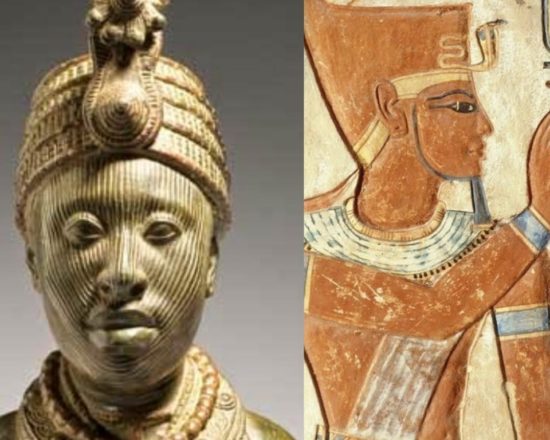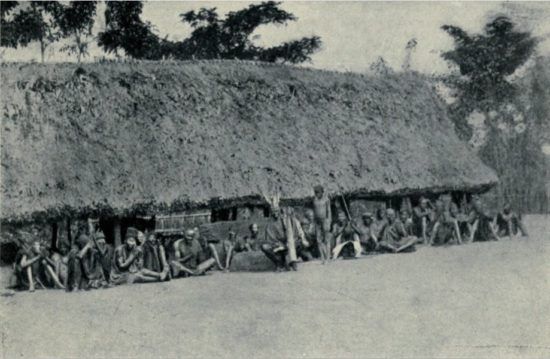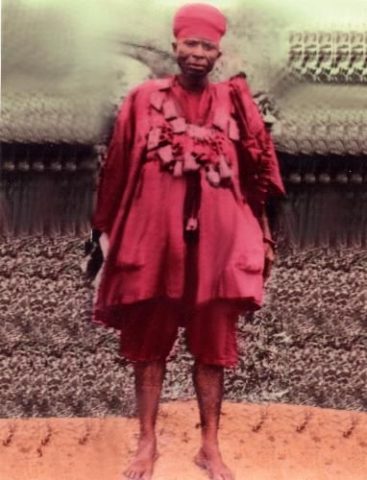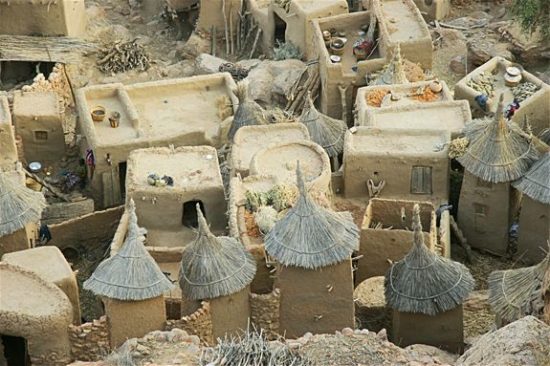Ancient Egyptian Religion – The link between Yorubas & Ancient Egyptians
Culture, to a layman, is the way of life. The dynamism and adaptability of culture remain the beauty of the concept in and of itself.
Both cultures in the context of this article are very integral even to the narratives passed about Africa and it is cultural inclinations.
Ancient Egypt was at the peak of civilization for humans, an independent nation whose culture was famous for significant cultural advances in every sphere of human understanding, from arts to science to technology and religion.
Great monuments that reflect the grandeur and sophistication of a culture that has also influenced other ancient civilizations are Greece and Rome.
Yorubas are one of the most “spiritual” cultures globally with spectacular peculiarities in ancient folklore, organized communities (political, economically wise, and socially ), sophisticated arts like the Ife art, and philosophies like Ifa Divination amongst others.
However, heated debates and research arise from the origin of culture in itself.
Diffusionist theories believe in the uniqueness of a particular culture, after which it spreads and is a practice by other societies.
Evolutionist theories believe in developing a culture based on natural progression, which explains that similar situations arise in different places and similar, but independent solutions are preferred to those problems; hence innovations and adjustments can be made several times, but it does not necessitate borrowing.
The former strongly believes in the influence of ancient Egyptian culture in Yorubas while the latter in the Yoruba culture’s independent creation. Some Yorubas in present-day speculate that they originated from Egypt while some others believe they originated from Mecca.
Researchers like Jonathan Olumide Lucas, Leo Frobenius have found several similarities, but then, these exist as speculations due to a lack of historical data.
First, Burial rites and ceremonies; Both cultures believe in befitting burials for the dead as they believe that it affects the delicate balance between the living and the dead.
They both believe that it brings fortune and goodwill to the bereaved.
Ancient Egyptian Religion – Rituals
They believe that family and immediate community engagement is an integral part of the burial rites as these existed as essential agents to the deceased while alive and are necessary for the proper send forth to the afterlife. Most importantly, it is the firm belief in the afterlife.
Both cultures believe in life beyond death, continuity of social roles like kingship, slavery, and artistry hence the need to provide clothing, material needs, burial goods, and, in extreme cases, servants and families of the king as they are deemed needful for rulership in the great beyond.
Both belief in the divinity and power of kingship, and the heart’s importance as an organ of the body denotes life after death.
More so, both cultures have strong inclinations towards spirits of the dead. The Yorubas believe that the dead’s spirits linger amongst the living; they believe that they can help or harm the living.
They hold concepts like reincarnation, transmigration, ancestral worship in high regard. The Yorubas fear the dead and have similar regard for them as much as their supreme being.
Although the Egyptians do not hold these same concepts with similar regard, they also believe in the dead’s spirits.
They worship and revere them, but they do not fear them, neither do they believe that they can affect the living.
Both cultures also tend to preserve dead bodies; Egyptians carry out mummification, which they do thoroughly and with high cultural regard.
Although there are no Yorubas mummifying records, they also hold purification and preservation of the dead’s bodies, very important.
In their view about reincarnation, ancient Egyptians believed in the concept but not as much as the Yorubas.
The Yorubas deem it very important to be reincarnated and firmly believe that it is an honor to be reincarnated. They do not, in any way, promulgate evil narratives about reincarnation.
Also, both cultures have similar beliefs in the afterlife journey and the location of the afterlife.
After one dies, the Yorubas concept that an individual undergoes a journey until they get to a river, and one will have to pay a ferryman a fee to cross the river.
The Egyptians believe in transporting a corpse for burial by crossing the Nile and linking the dead’s resurrection to the Nile’s seasonal tides.
Read Also: The Arakanga war | Egba & Ibadan | Yoruba History
Nuances are known, but similarities exist in the use of the river medium. Both cultures believe in the existence of the two heavens, one in which a person lives a comfortable life after passing judgment criteria about life on Earth and another degrading one for those that did not live much of a good life. Both believe that proper funeral rites must take place for appropriate transitioning and comfortability in any world that the individual would exist.
Similarities also exist in the gods, spirits, and ancestors. Derivation and origins of supernatural beings’ names are very common to both cultures; for instance, Anubis in the Egyptian culture is an evil being or denoted as that. Onubi in the ancient Yoruba dialect means an evil being, Osiri is a water god in the Egyptian culture. Oshiri is a water god in the ancient Yoruba culture.
Body mutilations like circumcision, excision, shavings, piercings, and others, including the sacredness of individual animals like the Ram, regalia of the king, lost wax process of bronze and brass making, usage of charms and amulets also have denoted similarities in both cultures.
Most importantly, linguistic evidence is also critical as some ancient words have similar origins and likeness and even have similar meanings; for example, Ra denotes time in ancient Egypt and Yoruba, time is Ira. Omi is water in both cultures also.
Read Also: The Owu – Ijebu War & The Owu Lost Children | Yoruba History
Speculations only exist as to whether there existed contact between ancient Egypt and the Yorubaland due to lack of archaeological data and a permanent settlement of the Egyptians in the Yorubaland to effect cultural mix. However, these few similarities are in oral history, few historical documents, and cultural remnants.
The independence in forming every culture in West Africa is illogical and must be due to some influence, borrowing, or copying from some already established culture. Similarities do not also justify origination or influence by some other culture.











